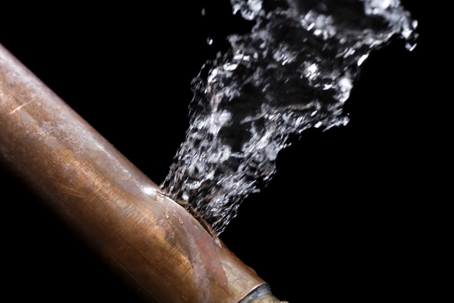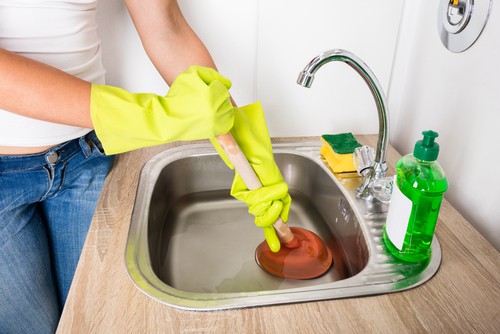Have you been searching for ideas on Plumbing Emergencies: Tips on What To Do Before?

Plumbing emergencies can strike at any time, creating stress and anxiety and prospective damage to your home. Whether it's a burst pipe, a clogged drainpipe, or a dripping faucet, understanding just how to handle the circumstance until a professional plumber gets here can conserve you from further complications. This article gives necessary emergency pipes ideas to assist you mitigate damages and gain back control during a pipes dilemma.
Turn Off the Water Supply
The very first step in any type of plumbing emergency situation is to turn off the supply of water. For localized concerns, such as a leaking faucet or commode, shut off the valve near the component. In the case of a significant leakage or burst pipeline, find your home's main water shut-off shutoff and turn it off immediately. Recognizing the place of these valves ahead of time can save beneficial time throughout an emergency.
Address Tiny Leaks with Short-lived Repairs
Small leakages can rapidly come to be considerable problems if left untreated. Use these short-lived repairs till expert help gets here:
While these fixes aren't irreversible, they can help lessen water loss and damage.
Unclog Drains Securely
A blocked drainpipe can be a discouraging and unpleasant issue. Below's how to tackle it:
If these methods don't function, stay clear of using extreme pressure, as it might worsen the blockage.
Handle Overflowing Toilets
An overruning commode can cause immediate mayhem. Right here's what you need to do:
Shut down Your Water Heater
In certain emergencies, such as a burst pipe, it's wise to shut down your hot water heater. This protects against getting too hot or damages to the system when water quits streaming. Shut off the power supply to the water heater (electric or gas) and let it cool down to avoid potential hazards.
Temporarily Stop a Ruptured Pipeline
A burst pipe can lead to significant water damages in mins. To alleviate the problem:
Call a specialist plumbing professional promptly to attend to the problem permanently.
Take Care Of Frozen Water Lines Very Carefully
In colder climates, icy pipes are a common emergency situation. If you believe a frozen pipe:
Protect against Additional Damage
Taking fast action to minimize damages can save you money and time over time. Here's just how:
. Have an Emergency Situation Plumbing Package
Prepare a basic pipes emergency package to handle small issues successfully. Your kit ought to consist of:
Having these tools handy can make a substantial difference in your capacity to manage emergencies.
Know When to Call a Specialist.
While quick fixes can help briefly, particular plumbing problems call for immediate expert focus. Call a plumbing if:.
Without delay contacting an expert makes sure the concern is resolved correctly and stops more difficulties.
Conclusion.
Plumbing emergencies can be frustrating, yet with the appropriate knowledge and tools, you can handle the circumstance successfully till aid arrives. By turning off the supply of water, dealing with little leaks, and utilizing momentary solutions, you can decrease damages and maintain your home safe. Bear in mind, these tips are temporary services; always speak with an accredited plumbing technician to manage the origin of the trouble. Prep work and quick thinking are your finest allies in any type of plumbing emergency.
8 Helpful Tips for Managing Plumbing Emergencies at Home
If your plumbing system hasn’t failed once, wait for it because almost everyone has a story to tell. Sometimes, it could be simple emergencies such as a leaking pipe, a blocked cistern, or even a big burst pipe. In situations like this, you need to have some handy tips to save you some money and from possible damages.
Take care of minor issues early.
Sometimes, you could have avoided an emergency by taking proactive measures while it was still early. Some major plumbing emergencies can be a result of an ignored minor issue. We recommend that you have items like plumbing tapes and other related items. A plumbing tape can allow you to manage minor leaks before the plumber arrives.
Cut off the water supply.
This tip is essential in almost any type of leakage problem. For problems like minor leakages in the toilet or kitchen, turn off the supply that takes water to the affected pipes. If the leakage is a major pipe, you must shut off the supply valve to the entire building. This will help you avoid flooding your home and neighbors if you share a flat.
Know your plumbing system
Folks typically move into a new apartment without understanding the water supply around the building. This can prove disastrous if a water emergency arises and the plumber is far away. The previous tip will prove useless if you don’t practice this one. More importantly, know where your water shut-off valve is located – you’ll need that knowledge to prevent potential home floods.
Have some common handy tools
There are lots of plumbing emergencies that you can handle without hiring a plumber. That’s why you must keep some tools available always. Some tools that you can use to fix simple plumbing emergencies easily include plumbing tapes, screwdrivers, thread seal tapes, plungers, pliers, tape measures, and rubber gloves.
Insulate your pipes from cold
You’ll save yourself from many plumbing expenses if you protect your water pipes from the cold. This is because of the harmful effects that cold weather can have on your pipes. During winter, your pipes can burst from being overly expected to freezing temperatures. So, make sure insulators are there to keep the pipes working correctly.
Avoid practices that will clog your toilet.
Many people indulge in practices that can damage the plumbing system of the entire building. One of these is when they use their toilet to dispose-off garbage. They flush all kinds of things, such as paper towels, bandages, hairs, female sanitary products, etc., down the toilet. This will block your toilet in the long run, incurring unnecessary expenditures. Dump such waste in the trash instead.
Check your dials regularly.
Sometimes, there could be leakages in your home without noticing them in time. So, constantly monitor your water meter dial. If the dial is reading when there is nobody using water, this is an indicator that there is leaking. Check for leaks immediately. Call a plumber as soon as possible if you can’t find any.
https://www.constructionplacements.com/8-helpful-tips-for-managing-plumbing-emergencies-at-home/

We were shown that write-up about What to Do While Waiting for an Emergency Plumber from a friend on a different web blog. In case you enjoyed our page if you please don't forget to share it. Many thanks for going through it.
Call Today